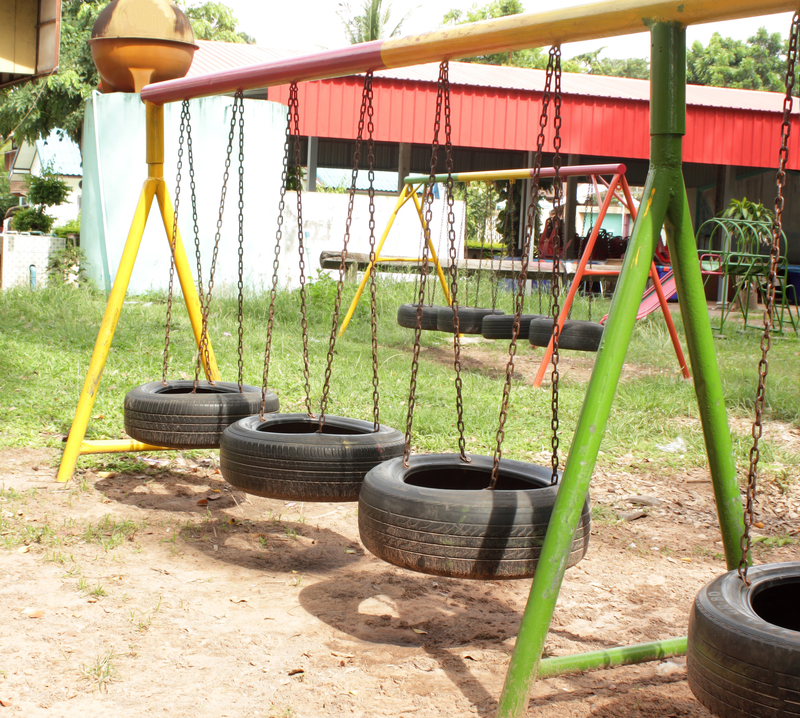Transform How You Get Rid of Bulky Waste and Save Cash
In an era where sustainability and smart spending go hand-in-hand, learning to efficiently manage bulky waste removal can make all the difference for your household, your wallet, and the environment. Traditional rubbish collection services are often costly and inconvenient, but with the right strategies and knowledge, you can transform how you get rid of bulky waste and save cash in the process.

Understanding Bulky Waste: What Is It?
Bulky waste typically refers to large items that are too big to fit in a standard wheelie bin or curbside collection, such as:
- Old furniture (sofas, chairs, tables, beds, wardrobes)
- Large appliances (refrigerators, washing machines, ovens)
- Mattresses and bed frames
- Garden waste (branches, logs)
- Carpets and rugs
- Large amounts of construction debris
Many local councils and private companies offer bulky rubbish collection, but these often come with restrictions, fees, and limited scheduling. With increasing costs and global emphasis on eco-friendly disposal, finding new ways to manage your hefty junk is more important than ever.
Why Rethink Your Approach to Bulky Waste Disposal?
- Cost Savings: Standard collection and skip hire are expensive and sometimes overpriced for the service provided.
- Environmental Sustainability: Reducing landfill use and boosting recycling helps protect natural resources.
- Convenience: Alternative methods often provide more flexible scheduling and location options.
- Community Benefit: Reusing or donating old items can help people in need rather than sending them to landfill.
Smarter Ways to Get Rid of Bulky Waste and Save Money
1. Donate Usable Items to Charity
Before you think about throwing out that old sofa or mattress, consider if someone else could use it. Many charities accept gently used furniture, appliances, and homewares. Not only do you clear space and avoid landfill fees, but you also help those in need.
- Furniture Bank - Many regions have charities focused on redistributing household goods to families transitioning out of homelessness.
- Salvation Army, British Heart Foundation, Goodwill - These and similar organizations often offer free collection for usable items.
- Community Social Media Groups - Local Facebook groups or Nextdoor can help you find individuals looking for exactly what you have to give.
2. Sell or Give Away Locally
The phrase "one person's trash is another's treasure" couldn't be truer - especially in the world of bulky waste disposal. By selling or giving away unwanted items, you not only save money on disposal fees, but you could even make a bit of cash.
- Online Platforms: Use sites like Facebook Marketplace, Craigslist, Gumtree, or OfferUp to quickly connect with local buyers or takers.
- Freecycling: Join local Freecycle groups to pass on your items for free to people who need them.
- Garage Sales: Hosting a garage sale can help you declutter your home while earning some money in the process.
3. Upcycle and Repurpose Bulky Items
With a little creativity, old furniture or appliances can find a new life with upcycling projects. Transforming your unwanted items saves on disposal costs and provides unique, functional, or artistic additions to your home or office.
- Turn an old door into a garden table, a headboard, or wall art.
- Repurpose drawers as shelving units or planters.
- Convert wooden pallets into benches, beds, or outdoor furniture.
- Salvage metal parts from appliances to create sculptures or unique garden decor.
You'll not only save cash and reduce waste, but you'll end up with something totally unique - and possibly gain a rewarding new hobby.
4. Leverage Council Collection - But Be Smart
Your local council may offer bulky item pick-up services, often for free or at a subsidised rate. However, this usually comes with strict criteria regarding the type and amount of waste, and scheduling can be infrequent.
- Check your council's website for guidelines and booking details.
- Combine bulky waste with neighbours: Some councils charge by the load, not the item, so team up to split costs.
- Prepare your items according to regulations to avoid surcharges or refused collection.
5. Use Private Waste Collection Services - Compare Carefully
If council pick-up isn't available or doesn't suit your needs, private companies may offer bulky waste removal. Prices and service levels vary widely, so it's essential to:
- Shop around and get several quotes.
- Review online ratings for reliability and compliance (avoid fly-tippers at all costs).
- Ask about sorting and recycling - responsible companies recycle as much as possible.
Hiring a man-and-van service can be cheaper than a skip, especially for mixed loads or when you don't have space for a large container.
6. Rent a Skip--But Only When It Makes Sense
Skip hire can be cost-effective if you have a significant amount of waste or can share the cost among friends or neighbours doing home renovations. Tips for maximizing skip hire include:
- Compare local skip companies for prices and service options.
- Choose the right size - too large and you overspend, too small and you'll need a second skip.
- Sort your waste to minimise landfill and take advantage of recycling.
7. Take Items Directly to the Tip or Recycling Centre
Sometimes, the cheapest way to get rid of bulky waste is to transport it yourself, if you have suitable vehicle access.
- Most local tips or civic amenity sites accept a range of bulky items for free or a nominal fee.
- Recycle electronics and white goods responsibly--many have dedicated drop-off days.
- Check for restrictions on commercial waste or construction debris - fees may apply.
By planning ahead, combining trips, and sorting materials, you can minimize both disposal costs and environmental harm.
Expert Tips to Further Lower Your Bulky Waste Disposal Costs
- Schedule Efficiently: Only dispose of bulky waste when you truly need to - maximize every pick-up or trip by consolidating.
- Avoid Hazardous Waste: Properly separating out hazardous or electronic waste avoids extra charges, and these items may have dedicated free drop-offs.
- Team Up: Collaborate with friends, family, or neighbours for shared loads and skip hire for added savings.
- Negotiate: Many small removal firms are open to haggling or reduced rates, especially for simple, ground-floor collections.
- Document Everything: Always ask private operators for a waste transfer note to ensure legal, registered disposal (protecting yourself from fly-tipping penalties).
- Repair and Sell: Sometimes spending a small amount to repair an item can mean a big return if sold online or at a local market.
Bulky Waste Disposal: Environmental Impact and How to Reduce It
Dumping large household items in landfill isn't just expensive - it's damaging to the planet. Mattresses, sofas, and appliances are loaded with materials that take decades or longer to decompose and may leach toxins into the soil and water. By recycling, reusing, and donating, you help conserve critical resources and minimise pollution.
- Mattresses: Specialist recyclers can break them down into steel, foam, and textiles.
- Appliances: Proper e-waste recycling prevents hazardous chemicals and metals from polluting the environment.
- Wood Furniture: Can be repaired or upcycled; bare wood can be composted or mulched (check with your council).
Why Reuse Is Better Than Recycling
Reusing items has the lowest environmental impact since it requires no further processing. When you donate, sell, or upcycle, you avoid the emissions and costs associated with recycling or manufacturing new products.
Legal and Ethical Considerations: What You Must Know
In many regions, you're responsible for ensuring your waste is disposed of legally. Fly-tipping (illegal dumping) carries heavy fines, even if you've hired someone else to remove the items.
- Always use licensed waste carriers (ask for credentials).
- Keep all paperwork for at least two years as proof of responsible disposal.
- Never leave items on public land or near charity shop doors after hours.
Comparing Methods: Which Is Best for You?
| Method | Best For | Pros | Cons |
|---|---|---|---|
| Donation | Usable furniture/equipment | No cost, helps others, eco-friendly | May not take all items; requires items in good condition |
| Sell/Give Away | Items with resale value | Potential cash back; easy with online platforms | May take time; buyer collection logistics |
| Council Collection | Households with occasional large items | Convenience, low or no cost | Infrequent; may limit types/amount |
| Private Collection | Those needing flexible dates or large clear-outs | Flexible; can move heavy items for you | Can be expensive; variable service quality |
| Skip Hire | Mass clear-outs, renovations | Handles large volumes/mixed waste | Permits and space can be an issue; not always eco-friendly |
| Tip/Recycling Centre | DIY, those with suitable vehicles | Often free or low cost; good for recyclables | Transport and lifting required; not for all items |

Frequently Asked Questions About Bulky Waste Disposal
What qualifies as bulky waste?
Items too large for regular rubbish bins, including old furniture, mattresses, white goods (fridge, washer), carpeting, and certain construction debris.
Will my council pick up bulky waste for free?
Some councils offer limited free pick-ups per year, but many charge a fee and restrict the types and quantity of items allowed. Always check your local guidelines before booking.
What if my items could be reused?
If your items are in fair to good condition, always attempt donation or resale before disposal. It saves money and benefits the community.
How do I avoid fly-tipping scams?
Only use registered and insured waste carriers. Get a "waste transfer note", and never pay cash without a legitimate receipt or contract.
Is it legal to leave bulky items on the curb?
No - unless it's on the exact date and time your council has scheduled a verified collection. Unauthorised dumping is illegal and carries heavy penalties.
Conclusion: Save Money, Save the Planet, Declutter Your Life
Bulky waste removal doesn't have to be costly, complicated, or harmful to the environment. By embracing smarter strategies - giving, selling, upcycling, collaborating, and making savvy use of the services available - you transform how you get rid of bulky waste and save cash. Not only will your budget thank you, but you'll make a positive impact on your community and the world around you.
Ready to clear out your space and transform your bulky waste disposal for good? Start today with these proven tips!